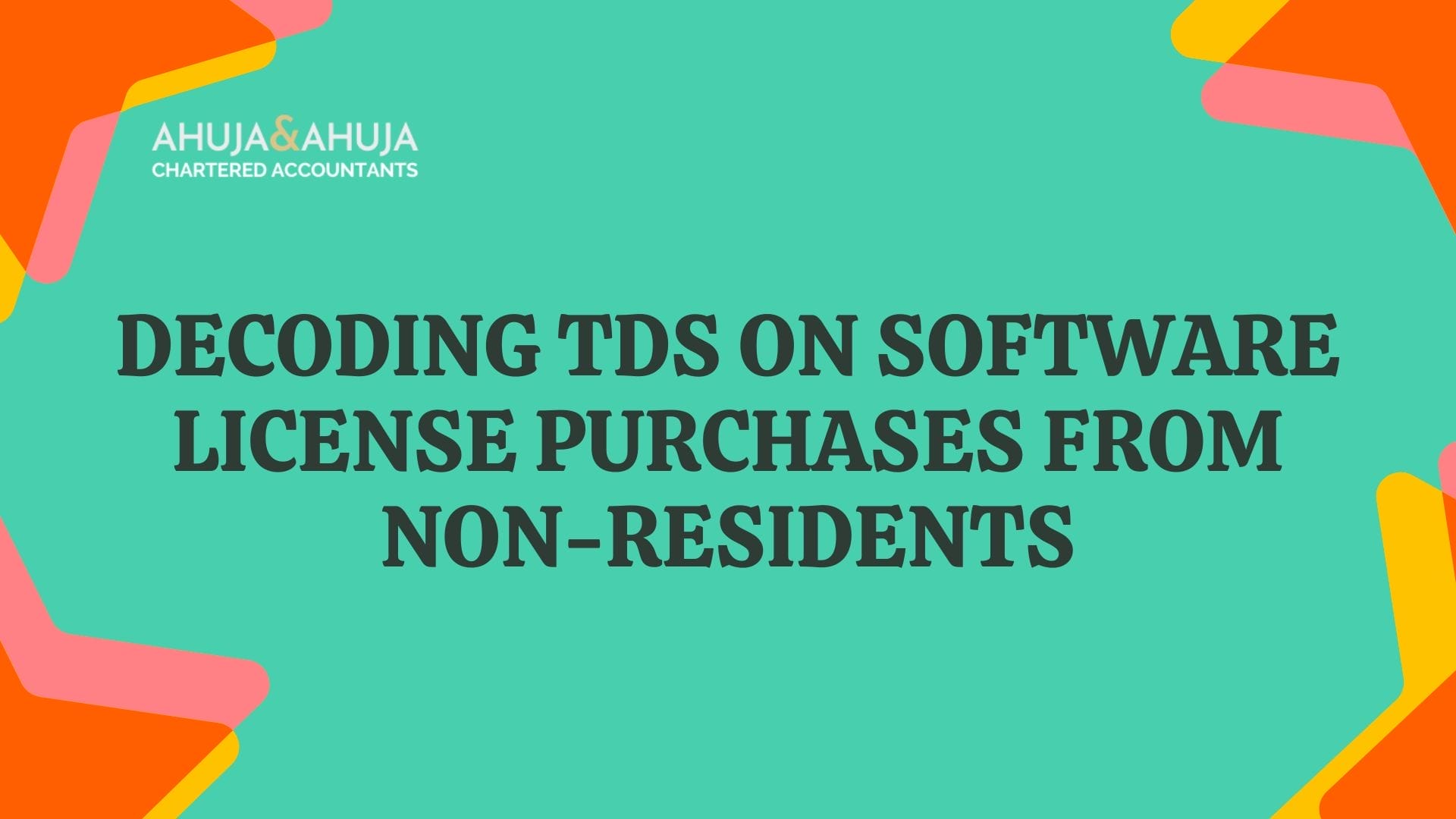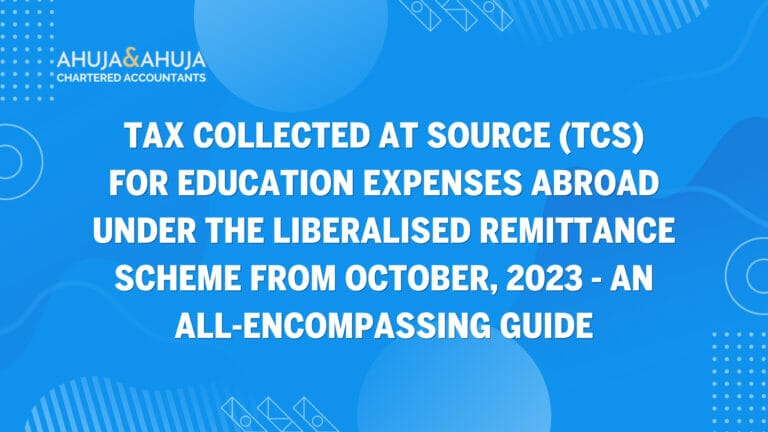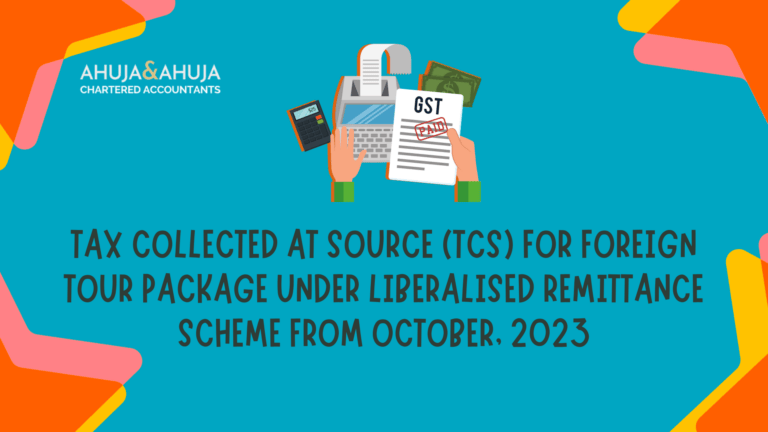TDS on Software License Purchases from Non-Residents: Navigating the Supreme Court’s Landmark Judgment
The landscape of international transactions has recently witnessed an important reshaping through the Supreme Court of India’s ruling on offshore software purchasing. The ruling has brought clarity to the ambiguity around the jurisdiction of tax deductible at source (TDS) when making payments to non-residents for software usage by resident Indians for internal business operations. This judgement will have significant implications on the fiscal interaction between Indian companies and foreign entities.
Brief Discussion About The Case
The case in focus is the dispute between Engineering Analysis Centre of Excellence Pvt. Ltd. (the Applicant) and The Commissioner of Income Tax & ANR. The Applicant, a resident Indian company, is an end-user of shrink-wrapped computer software imported directly from the USA. The Assessing Officer held that by making payment for the software usage, the Applicant was paying for the copyright transferred to them from the USA company.
Under sec. 195 of Income Tax Act, 1961 and DTAA between India and the USA, the applicant was therefore required to deduct TDS on such payment, giving rise to the conflict. However, ITAT sided with the applicant, citing their verdict in a similar case, Samsung Electronics Co. Ltd. v. Income Tax Officer.
The story took a turn when the Revenue appealed against the ITAT’s order to the High Court of Karnataka. The High Court then ruled that resident Indian importers were indeed liable to deduct TDS.
This complex dispute led to an appeal to the highest court of India to determine the correct interpretation of the law.
Appeal to the Supreme Court
Understanding the multilayered dynamics of this issue, the Hon’ble Supreme Court divided the appeals into four distinct categories based on the different operations. These categories brought different aspects of the case into focus, from direct software purchase by end-users to the software being affixed onto hardware and sold as an integrated unit.
Analyzing the Supreme Court’s Verdict
In the civil appeals nos. 8733-8734 of 2018 ENGINEERING ANALYSIS CENTRE OF EXCELLENCE PRIVATE LIMITED Versus THE COMMISSIONER OF INCOME TAX & ANR., the apex court made a pivotal decision, addressing the intricacies of cross-border transactions involving software purchases. Here, we piece apart the Hon’ble Supreme Court’s examination and the consequential enlightenment it provided on these transactions.
The Interpretation & Judgement by the Hon’ble Supreme Court
The crux of the matter that the Hon’ble Supreme Court deliberated upon was whether payments made to foreign companies for software procurement should be subject to tax withholding (TDS) under Section 195 of the Income Tax Act, 1961.
The court’s interpretation centered around several pivotal axes:
- Section 195’s Applicability: The court confirmed that TDS on payments to non-residents is only mandatory if the income is assessable to tax in India.
- Understanding Royalty Through DTAA: The Double Taxation Avoidance Agreement (DTAA) between India and the USA was thoroughly analyzed, especially the definition of royalties which includes payments for the use of, or the right to use, a copyright in a computer program or software.
- Nature of License Granted: Clarifying the landscape further, the Supreme Court elaborated on the nature of the license granted to the distributor—underscored as non-exclusive and non-transferable. Hence, the end-user’s right is simply to use the software but does not extend to reverse-engineering, modification, or reproduction for resale.
- Rights vs. Physical Objects: Critical to the court’s interpretation was differentiating between the physical object (the copy of the software) and the rights therein. Mere purchase of software did not lead to acquisition of any right in the copyright akin to the rights held by the copyright owner.
- Analogous Case of Book Resale: To elucidate the issue, the Hon’ble Supreme Court drew parallels with the resale of books. The Indian distributors of foreign books do not own copyright to the books sold, similarly, the software resellers do not receive any copyright under the terms of their agreements.
Conclusive Judgment
Subsequently, the Court unearthed the heart of the matter, determining that such transactions could not be deemed as royalties. It was declared that the charges paid for software procurement by Indian entities to foreign non-resident companies are not for the use of, or the right to use copyright, and therefore, not liable for TDS under Section 195 of the Income Tax Act on these transactions.
Case Categories and TDS Deductible:
In conclusion, across all the four categories discussed by the Supreme Court, TDS under section 195 was rendered non-deductible:
- Computer software purchased by end-users from foreign non-resident suppliers – No TDS deducible.
- Software purchased by Indian companies, acting as distributors, from foreign suppliers – No TDS deducible.
- Software purchased by foreign distributors from foreign sellers, then sold to Indian distributors or end-users – No TDS deducible.
- Software affixed onto hardware and sold as an integrated unit by foreign suppliers to Indian distributors or end-users – No TDS deducible.
This judgement does more than just carve a path for the present; it is a milestone that sets precedence for future interpretations and fiscal policies pertaining to the dynamic relationship between intellectual property rights and taxation in the growing digital economy.
Frequently Asked Questions (FAQs)
How Does this Verdict Affect Indian Businesses?
The Supreme Court’s decision is a welcome relief for many Indian businesses. It clarifies that payments made for the purchase of software from foreign, non-resident suppliers or manufacturers are not subject to TDS under section 195. This can potentially reduce the cost of acquiring software and alleviate compliance burdens related to taxation on such transactions.
What Rights are Transferred Under Distribution Agreements?
The judgment outlined that distribution agreements generally provide only a non-exclusive and non-transferable license to distribute the software. These agreements do not transfer any other rights that would be characterized under ‘copyright usage’, thus there is no liability to deduct TDS based on such transactions.
What is Meant by Royalties in Terms of Software?
As per the DTAA and the case examined, royalties refer to payments for the use, or right to use, a copyright in a computer program or software. The Supreme Court clarified that payments made for the purchase of software do not amount to royalties unless there is a transfer of rights akin to the rights held by the copyright owner.
What is the Role of Section 195 in the Income Tax Act, 1961?
Section 195 of the Income Tax Act, 1961, imposes an obligation to deduct TDS on any sums chargeable under the act, which are payable to a non-resident. The Supreme Court’s verdict made it clear that the section does not apply to payments for software purchases as explained above, as these do not constitute income that is taxable in India.
How Does The Verdict Affect Contractual Agreements for Indian E-Stores?
Indian e-stores which engage in contractual agreements with foreign suppliers for the purchase of software will benefit from the verdict. As per the ruling, they are not liable to withhold taxes on such payments, fostering a better business environment.
How Does This Decision Affect Foreign Software Manufacturers?
For foreign software manufacturers, the decision signifies that their earnings from the software sale will not be subjected to TDS in India, possibly making India a more attractive market. However, they must still stay apprised of their tax liabilities in their resident jurisdictions.
By providing transparency and reducing the taxation burden, the Supreme Court’s judgement stands as a beacon of direction for future legislation in the domain of copyright and software sales. These FAQs only skim the surface of the vast implications of this landmark decision.
Disclaimer
The materials provided herein are solely for educational and informational purposes. No attorney/professional-client relationship is created when you access or use the site or the materials. The information presented on this site does not constitute legal or professional advice and should not be relied upon for such purposes or used as a substitute for professional or legal advice.







Very well explained the decision of the Supreme Court. Thanks.